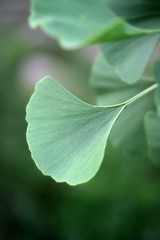
If you like to try your hand at new things and have a penchant for the old or shiny.. no not your dating taste, but something earthier... you may want to consider a trip to Vermillion Bluffs near the town of Princeton, British Columbia. Princeton has long been known as a hotbed of paleobotany.
During the middle Eocene, 45-50 m.y.a., a number of freshwater lakes appeared in an arc extending from Smithers, through the modern Cariboo, to Kamloops, the Nicola Valley, Princeton, and Republic, WA. The lakes likely formed after a period of faulting produced a number of basins, called grabens into which water collected.
The faulting was followed by a time of volcanism that produced periodic falls of fine-grained ash. The ash washed into the lakes and because of its texture, and possibly because of low water oxygen levels on the bottoms that slowed decay, plant, invertebrate, and fish fossils were preserved in wonderful detail.
Princeton boasts many fossil exposures within the middle Eocene, Allenby Formation and most enjoying a high degree of preservation. A crack of the hammer yields fossil maple, alder, fir, pine, dawn redwood and ginko fossil material. Several species of fossilized insects can be found in the area and rare, but occasional fossil flowers and fish.





Comments